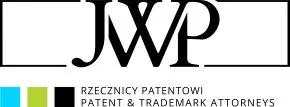As we already know, the European Patent Office (EPO) has refused two European patent applications in which the artificial intelligence DABUS has been designated as an inventor.
And now we know why. The European Patent Office has published the grounds for its decision to refuse the application related to the invention developed by DABUS. We have already discussed the solutions covered by the applications.
In the grounds for the decision, the European Patent Office points out that the European Patent Convention (EPC) grants a wide variety of rights to inventors, including the right to be designated as an inventor in patent documents. Even if a person is not mentioned in the list of inventors, they may demand their rights as inventors to be recognised before a national court.
The current legal systems of various contracting states to the European Patent Convention do not provide for the granting of any rights arising from the fact of being an inventor, such as the right to be listed as an inventor or to be designated as an inventor in a patent application, to man-made neural network systems or artificial intelligence systems. Patent offices in China, Japan, Korea, and the USA are of the same opinion. Regulations of some contracting states to EPC clearly define an inventor as a natural person who creates an invention. We have no knowledge of a national law that would recognise an object, in particular an Al system, as an inventor.
The EPO indicates that AI systems cannot be a party to an employment contract and they are the property of an entrepreneur. AI systems do not acquire any rights to the results of their "creation" and may not transfer such rights to other entities. Consequently, the owner of the DABUS system cannot be regarded as a successor in title to the results of the work of such artificial intelligence.
The applicant may appeal against those decisions to the EPO's Boards of Appeal. Bearing in mind the efforts made so far to challenge the European Patent Office's approach adopted in this regard, an appeal would not be surprising.
It should be noted that contrary to the applicant's arguments, this decision does not mean that inventions created using AI are non-patentable, but it is required to identify at least one natural person as an inventor. Normally, it would be the person that has introduced solutions to the computer system in order to achieve the results, e.g. obtained through machine learning.
https://www.epo.org/news-issues/news/2020/20200128.html
The content of this article is intended to provide a general guide to the subject matter. Specialist advice should be sought about your specific circumstances.

